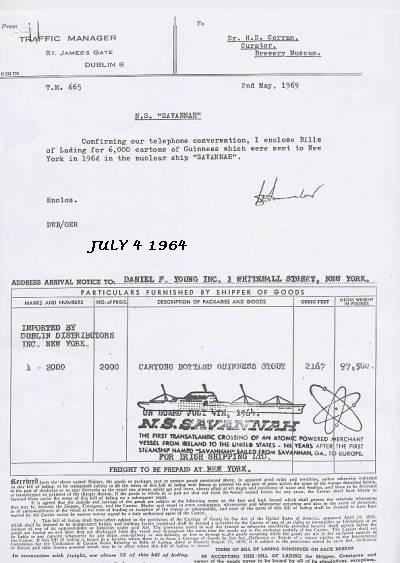 The Officer's Lounge
The Officer's Lounge
...lore, and seafaring mysticism
Marine Engineers have a
reputation of being direct, methodical, dry - even boorish. After all, spending
four hours clearing the 265 pounds of mussels from the strums boxes does,
sometimes, give that appearance. The Officer's Lounge on www.dieselduck.net is a little place
online for ship's crew to relax and laugh, as we explore marine and engineering
lore.
" Sailors are simple, light hearted souls, whose load of yesterday is airy as thistle-down today."
- Arthur Mason
I would like to submit to the rest of the world that, yes being methodical,
careful, even maybe - anal, isn't the best of reputation for a profession. But
it's the attention to details that makes great engineers. Really, it is !
This
area is here to
- to make you an engineer with a sense of humor
- cheer up your day
- make you the talk of the ship - "you da man"
- make fun of deckies - I know that's too easy, but...
- make marine engineers into social butterflies - well...ok. maybe not
...and we do that by...
- Play practical jokes on unsuspecting mates
- Telling jokes
- Learning about seafaring lore and culture
- Telling funny stories about seafaring
- Learn about "nerdy" stuff
A toast in the Nelson's Navy era
- Mondays "our ship at sea"
- Tuesdays "our men"
- Wednesday "ourselves - as no one is likely to concern themselves with our welfare"
- Thursdays "a bloody war or a sickly season"
- Fridays "a willing foe and sea-room"
- Saturdays "sweethearts and wives (may they never meet)"
- Sundays "absent friends"
On the topic of rum...
"grog" was the term use for
the British Navy's daily ration of half pint of rum, mix with a quarter pint of
water. This tradition started in 1850 with Vice Admiral Edward "Old Grog" Vernon
and ended in 1970, officially.
- rumbullion - original word for rum. Distilled from molasses, a by-product of sugar refining
- bumboo - rum, water, sugar and nutmeg
- rumfustian - beer, gin, rum, raw eggs, sugar, cinnamon and nutmeg; heated together
- hangman's blood - a solution of rum, gin, brandy and dark beer

Sailors lining up for their daily grog ration
The seafarer and superstitions
- Never kill a spider, that's bad luck
- Nailing your boots on a plank and throwing overboard, superstitious mariner say that this will bring good luck, i.e. your feet will never leave the deck
- "Juliet" is the only letter not designating a time zone since females are considered ominous
Darren Williams submits the following superstitions from his time fishing...
- Leaving Port on Friday: Surpassing the grand-daddy of all superstitions, that it is bad luck to have women aboard, leaving port on a Friday is easily the most consistently applied superstition on the B.C. coast, and possibly abroad. It is thought that merchant and navy seamen developed this superstition in order to encourage the ship to stay in town for the most notorious night of the week in local watering holes.
- Calling the Ship a "Pig" - Implying fat, slow movement, it is believed this word will insult the character of the ship, leading to disaster, break-down or generally poor performance of the vessel. That calling the ship a "pig" would have a negative effect on her personality should be obvious. I don't imagine there exists a single female personality that would suffer lightly being called a "pig".
- Whistling - Whistling brings the wind. While it may not bring bad-luck, whistling is believed to cause the wind to blow. In some circumstances wind can be good, but in most, crewmembers are discouraged from whistling. It is also considered bad etiquette to whistle on someone else's boat as it is not your property and life alone that you endanger.
- Black Briefcases Implying a sinister presence on the vessel, the origin of this superstition is unclear. Some fisherman, particularly trawlers, jested of the relevance of this superstition as the evil black briefcase became the general issue of Archipelago Marine Research's fisheries observers in the mid 1990s.
- Hat on the Galley Table This is a faux-superstition started by the cooks, masters of the galley. Really a matter of hygiene and good manners and not a real superstition at all, some crew members have been known to become mysteriously ill after insisting they place their hat on the galley table. "Strange", says the cook.
- Hatch Upside Down - Placing a hatchcover or manhole upside down is bad luck. There are various explanations. Upside down covers forebode of a capsized vessel. Practically speaking, all hatches and manholes should be in the sealed position while at sea in any event; to do otherwise is said to be bad practice. This superstition is known to have been modified on some vessels to prohibit buckets of water from being placed on the hatchcover possibly symbolizing standing water over the hatch, a bad situation in any case.
- Mugs Facing Astern If coffee mugs are hung on the galley or wheelhouse wall, they must be facing (open side) astern. This quirky belief is thought to originate from the same practice that was common and necessary for sailors prior to closed-hull construction of vessels. Working and eating out in the open, your coffee cup would fill with salt water if it was not hanging astern.
- No Flowers - The association between flowers and funerals is most likely what makes having flowers on a boat to be unlucky.
- Opening Cans Upside Down Any can opened upside down must be thrown out without consuming its contents. To do otherwise is bad luck. The rational basis for this is that when canned food became available on vessels around 1810 the early canning technology allowed some air into the cans. Some of these tin cans sat on vessels for so long that opening them the wrong way might expose the diner to eating corroded tin, a mild poison. Hypothetically, this superstition would require us to place all our cans in the locker upside down (so they can be opened upright with the poison side down). However, canning technology has eliminated air pockets that once used to be more common, and we no longer face this danger.
(THE) DEVIL TO PAY
Originally, the saying was "The devil to pay and no pitch hot." In the old wooden-hulled ships, devil seams joined the external hull timbers with the deck planking; there were also references to a devil seam back aft, where the hull timbers join at the rudder post. Seams were caulked, or sealed, by jamming oakum fibre into the gaps, then smearing the seam with melted pitch or tar. If one of these seams worked open in rough weather, a great deal of water could be shipped before it was repaired. This term is probably the origin of the term 'hell to pay'.

Off watch and need some ideas what book to read?
Well then
here are some nautical/marine themed books to look up next time your at your
favourite library or bookstore.
- Supership - Noel Mostert
- In Hazard - Richard Hughes
- The Sea and the Jungle - H. M. Tomlinson
- The Serpent's Coil - Farley Mowat
- Gray Seas Under - Farley Mowat
- Shalimar - Capt. F.C.Hendry
- Return of The Coffin Ships: The Derbyshire Engima
- Das Boot: The Boat - Lothar-gunter Bucheim
- Lord Jim, Youth, Typhoon, Mirror of the Sea, End of the Tether, Nigger of the Narcissus, Heart of Darkness - Joseph Conrad
- Sea Wolf, Mutiny On the Elsinore - Jack London
- White Jacket, Redburn, Moby Dick - Herman Melville
- Voyage, Wanderer - Sterling Hayden
- Captain - Jean De Hartog
- Wreck of the Mary Deare - Hammond Innes
- The Cruel Sea - Nicholas Monsarrat
- Hairy Ape, Thirst, Long Voyage Home - sea plays by Eugene O'Neill
- The Caine Mutiny - Herman Wouk
- Islands In the Stream, To Have and Have Not - Ernest Hemingway
- Tales of the South Pacific, Return to Paradise - James Michener
- The Bounty Trilogy - Mutiny On the Bounty, Men Against the Sea, Pitcairns Island - Nordhoff and Hall
- The African Queen - C.S. Forester
- The Brassbounder - David Bone
- H.M.S. Ulyses - Alistair MacLean
- The Riddle of the Sands - Erskine Childers
- The Oxford Book of the Sea, The Oxford Book of Sea Stories
- Slow Boat to China, Slow Boat Home, In Search of Conrad - Gavin Young
- Ride out the Storm - Roger Vercel
- Seamans Bible, Para Handy Tales - Niel Munro
- The Wreck of the Grosvenor - W. Clark Russell
- The Perfect Storm: A True Story of Men Against the Sea - Sebastian Junger
- Looking for a ship - John McPhee
- High Seas High Risk: The Story of the Sudburys (Seaspan history) - P. W. Norris
- San Andreas - Allistar MacClean
- Highliner - William McCloskey
- Moby Dick, by Herman Melville
- The Old Man and the Sea, by Ernest Hemingway
- Captains Courageous, by Rudyard Kipling
- Bird of Dawning, by John Masefield
- The Wreck of the Grosvenor, by W. Clark Russell
- Lord Jim, by Joseph Conrad
- The Distant Shore, by Jan de Hartog
- Delilah, Marcus Goodrich
- Treasure Island, Robert Louis Stevenson
- Gallions Reach, by H.M. Tomlinson
- Captain Blood, Rafael Sabatini
- H.M.S. Ulysses, Alistair MacLean
- The Wreck of the Mary Deare, Hammond Innes
- A Prayer for the Ship, Douglas Reeman
- Mister Roberts, Thomas Heggin
- Submerged, Edward Ellsberg
- Call of the Offshore Mind, Ralph Paine
- Blood Knot, Sam Llewellyn
- The Hunt for Red October, Tom Clancy
- Voyage, Sterling Hayden
- River Queen (story of Lucille Macdonald of Rivtow) by Levi
- The Sand Pebbles by Richard McKenna
- The Sons of Martha and Other Stories by Richard McKenna. "Of particular note is "King's Horsemen". That one will keep you flipping pages." Writes Tom W.
- "Uncommon Carriers" by John McPhee. These were collected from his "Annals of Transportation" stories in "The New Yorker" magazine
- Seized by Max Hardberger
- A Captain's Duty - Richard Philips (of the Mearsk Alabama)
- The Box: How The Shipping Container Made The World Smaller and the World Economy Bigger" by Marc Levinson (excellent book)
- Into the raging sea, Rachel Slade about the SS El Faro and the state of US shipping in general
-
The sinking of the Queen of the North, Colin Henthorpe

He who goes to sea for pleasure would go to hell for a pastime.- Samuel Johnson
The wreck of the Edmund Fitzgerald
Gordon Lightfoot
The legend lives on from the Chippewa on down
Of the big lake they
called Gitchigumi
The lake, it is said, never gives up her dead
When the
skies of November turn gloomy
With a load of iron ore twenty-six thousand
tons more
Than the Edmund Fitzgerald weighed empty.
That good ship and
crew was a bone to be chewed
When the "Gales of November" came early.
The ship was the pride of the American side
Coming back from some mill in
Wisconsin
As the big freighters go, it was bigger than most
With a crew
and good captain well seasoned
Concluding some terms with a couple of
steel firms
When they left fully loaded for Cleveland
And later that night
when the ship's bell rang
Could it be the north wind they'd been feeling?
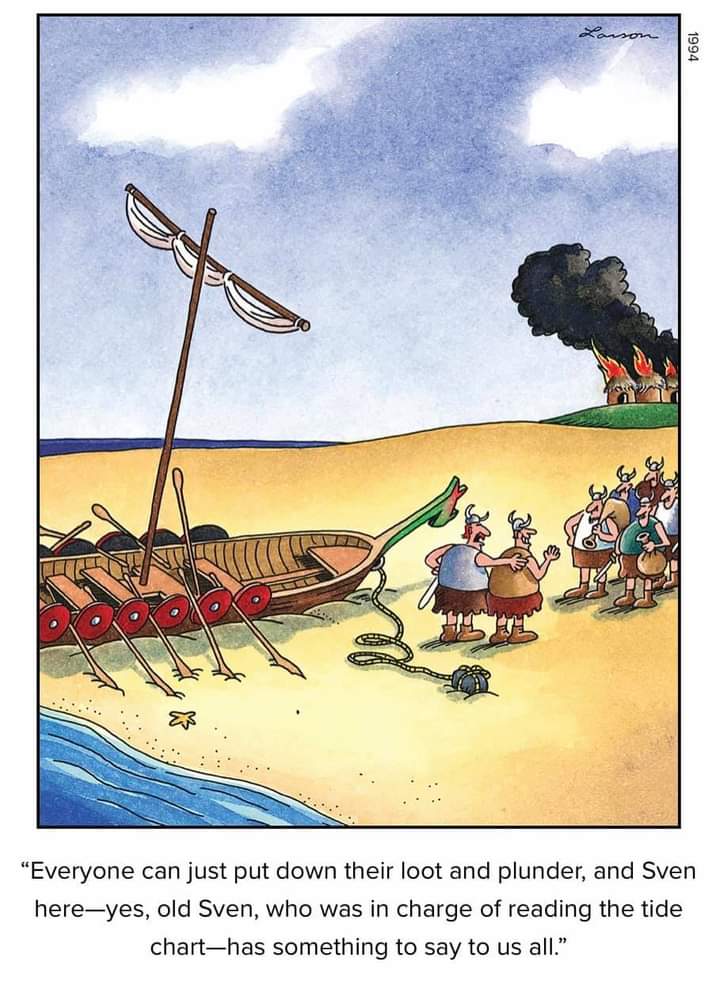 The wind in the wires made a tattle-tale sound
The wind in the wires made a tattle-tale sound
And a wave tumbled over
the railing
And every man knew, as the captain did too,
T'was the witch of
November come stealing.
The dawn came late and the breakfast had to wait
When the gales of November came slashing
When afternoon came it was freezing
rain
In the face of a hurricane west wind.
When suppertime came, the
old cook came on deck saying
"Fellas, it's too rough to feed ya."
At seven
PM the main hatchway caved in, he said
"Fellas, it's been good to know ya"
The captain wired in he had water coming in
And the good ship and crew
was in peril.
And later that night when his lights went out of sight
Came
the wreck of the Edmund Fitzgerald.
Does any one know where the love of
God goes
When the waves turn the minutes to hours?
The searchers all say
they'd have made Whitefish Bay
If they'd put fifteen more miles behind her.
They might have split up or they might have capsized;
They may have broke
deep and took water.
All that remains are the faces and the names
Of the
wives and the sons and the daughters.
Lake Huron rolls, Superior sings
In the rooms of her icewater mansion.
Old Michigan steams like a young man's
dreams;
The isles and bays are for sportsmen.
And farther below Lake
Ontario
Takes in what Lake Erie can send her,
And the iron boats go as the
mariners all know
With the gales of November remembered.
In a musty
old hall in Detroit they prayed,
In the "Maritime Sailors' Cathedral."
The
church bell chimed till it rang twenty-nine times
For each man on the Edmund
Fitzgerald.
The legend lives on from the Chippewa on down
Of the big
lake they call Gitchigumi
Superior, they say, never gives up her dead
When
the gales of November come early
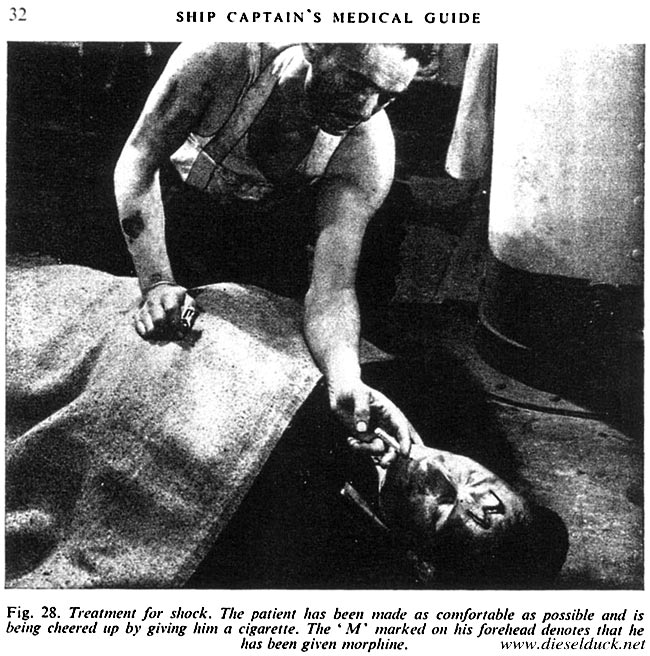 LANDLOCKED
SAILOR
LANDLOCKED
SAILOR
Words & Music by Tom Lewis
Chorus:
Poor old landlocked
sailor, washed-up on the shore,
Never been so many miles from the sea before,
Is he dreaming of the surging tide, the rolling swell?
Is he dreaming of the
ocean? No - is he hell!
He's a happy landlocked sailor living in the
trees
He swapped the rolling tide-race for the mountain breeze,
With his
wife he lives in paradise in mountains of B.C.,
How I wish that happy
landlocked sailor could be me.
He finds that on the lake he's never
bothered by the tide,
All his navigation is done on the mountainside,
Waves of ocean-blue have changed to waves of forest-green,
White horses into
snow-capped peaks as far as can be seen.
He used to sail the sea-lanes to
exotic ports-of-call,
Now he cruises dusty roads down to the local mall,
His roving days are over, his feet upon the shore,
He's never going back,
he's on dry-land for evermore.
(Now you know that happy landlocked sailor's
really me.)
Tom Lewis is a retired Royal Navy sailor who is presently
happily landlocked in the mountains of British Columbia.
He has a number of
excellent nautical CDs out.
CANNON BALLS
In the heyday of sailing ships, all war ships and many freighters carried iron cannons. Those cannons fired round iron cannon balls. It was necessary to keep a good supply near the cannon, but prevent them from rolling about the deck. The best storage method devised was a square based pyramid with one ball on top, resting on four resting on nine which rested on sixteen. Thus, a supply of thirty cannon balls could be stacked in a small area right next to the cannon. There was only one problem - how to prevent the bottom layer from sliding/rolling from under the others. The solution was a metal plate called a "Monkey," with sixteen round indentations. If this plate was made of iron, the iron balls would quickly rust to it. The solution to the rusting problem was to make "Brass Monkeys." Few landlubbers realize that brass contracts much more and much faster than iron when chilled. Consequently, when the temperature dropped too far, the brass indentations would shrink so much that the cannon balls would come right off the monkey. Thus, it was quite literally, "Cold enough to freeze the balls off a brass monkey!"
...did you know Steve McQueen was nominated for
a "best actor" Oscar award for the
part he played
as ship's engineer in the 1966 movie, "The Sand Pebble"
The Cadet Chant
 Suck squeeze bang blow that's the way our engines go!
Mar eng HOOH!
Suck squeeze bang blow that's the way our engines go!
Mar eng HOOH!
You had better lube it up otherwise it will get stuck! Mar eng
HOOH!
Up down fore aft that's the way we crank our shaft! Mar eng HOOH!
Round and round the turbo goes watch out we might blow our load! Mar eng HOOH!
Submitted by Dave Steel 10.2004
The Engineer's Song
An engineer
told me before he died
A rum, tity bum, tity bum, tity bum
An engineer
told me before he died
And I've no reason to believe he lied
A rum, tity
bum, tity bum, tity bum
A rum, tity bum, tity bum, tity bum
He met a
maiden with a ......................
A rum, tity bum, tity bum, tity bum
He met a maiden with a ......................
She couldn't be satisfied
A
rum, tity bum, tity bum, tity bum
A rum, tity bum, tity bum, tity bum
So
he built a ____ of steel
A rum, tity bum, tity bum, tity bum
So he built a
____ of steel
Two great balls and a great big wheel
A rum, tity bum, tity
bum, tity bum
A rum, tity bum, tity bum, tity bum
.....................
and on it goes as I remember and you all know
Ah, great old times!!
the ginger beers

"...newspaper men are almost as bad as sailors" not sure what is
means, but it's from the 1941 movie, Citizen Kane
SHIT
Historical information you need to know about shipping
Manure: In the 16th and 17th centuries, everything had to be transported by
ship. It was also before commercial fertilizer's invention, so large shipments
of manure were common.
It was shipped dry, because in dry form it
weighed a lot less than when wet, but once water (at sea) hit it, it not only
became heavier, but the process of fermentation began again, of which a
by-product is methane gas.
As the stuff was stored below decks in
bundles you can see what could (and did) happen. Methane began to build up below
decks, and the first time someone came below at night, with a lantern, BOOOOM!
Several ships were destroyed in this manner before the cause was determined.
After that, the bundles of manure were always stamped with the term,"Ship
High In Transit" which meant for the sailors to stow it high enough off the
lower decks so that any water that came into the hold would not touch this
volatile cargo and start the production of methane.
Thus evolved the term
"S.H.I.T," which has come down through the centuries and is in use to this very
day.
What I've learned as I've matured as a Marine Engineer
- I've learned that no matter how much I care, some people are just assholes.
- I've learned that it takes years to build up trust, and it only takes suspicion, not proof, to destroy it.
- I've learned that you shouldn't compare yourself to others - they are more screwed up than you think.
- I've learned that you can keep vomiting long after you think you're finished.
- I've learned that we are responsible for what we do, unless we are celebrities, politicians or are deck officers.
- I've learned that regardless of how great and exciting a new ship is at first, the passion fades, and there had better be a lot of money to take its place.

Submitted by Harry O. - 12.2009
In Cabin'd
Ships At Sea
By: Walt Whitman
IN cabin'd ships, at sea,
The
boundless blue on every side expanding,
With whistling winds and music of the
waves--the large imperious waves--In such,
Or some lone bark, buoy'd on the
dense marine,
Where, joyous, full of faith, spreading white sails,
She
cleaves the ether, mid the sparkle and the foam of day, or under many a star at
night,
By sailors young and old, haply will I, a reminiscence of the land, be
read,
In full rapport at last.
Here are our thoughts--voyagers'
thoughts,
Here not the land, firm land, alone appears, may then by them be
said;
The sky o'erarches here--we feel the undulating deck beneath our feet,
We feel the long pulsation--ebb and flow of endless motion;
The tones of
unseen mystery--the vague and vast suggestions of the briny world--the
liquid-flowing syllables,
The perfume, the faint creaking of the cordage, the
melancholy rhythm,
The boundless vista, and the horizon far and dim, are all
here,
And this is Ocean's poem.
Then falter not, O book! fulfil your
destiny!
You, not a reminiscence of the land alone,
You too, as a lone
bark, cleaving the ether--purpos'd I know not whither--yet ever full of faith,
Consort to every ship that sails--sail you!
Bear forth to them, folded, my
love--(Dear mariners! for you I fold it here, in every leaf;)
Speed on, my
Book! spread your white sails, my little bark, athwart the imperious waves!
Chant on--sail on--bear o'er the boundless blue, from me, to every shore,
This song for mariners and all their ships.
There is nothing that duct tape or roses can't fix.
- Marty's Mantra
Did you know?
The Slinky was created by a US Navy marine engineer stationed at the
Philadelphia Shipyards. He later became an evangelist and Bible salesman in
Bolivia, leaving behind his wife, his children, and the Slinky fortune.
***The following cultural insights are provided by Yasrnin Prabhudas, as found in the ITF Seafarer's Bulletin 2008
China
China has a long seafaring tradition, going back 7,000 years. It reached its
peak during the Ming Dynasty from 1368 to 1644. Today there are some half a
million Chinese seafarers.
The legend of the Chinese seafaring hero Zheng
He
Zheng He lived in the Ming Dynasty. His fleet comprised more than 300
ships, employing 27,000 seafarers and he is said to have voyaged to more than 30
countries and regions in Asia and Africa, between 1405 and 1433. It is believed
that the routes he took linked the Western Pacific and the Indian Ocean, sailing
as far west as the Persian Gulf and Madagascar. His voyages have been recorded
87 years earlier than Columbus' discovery of the Americas.
S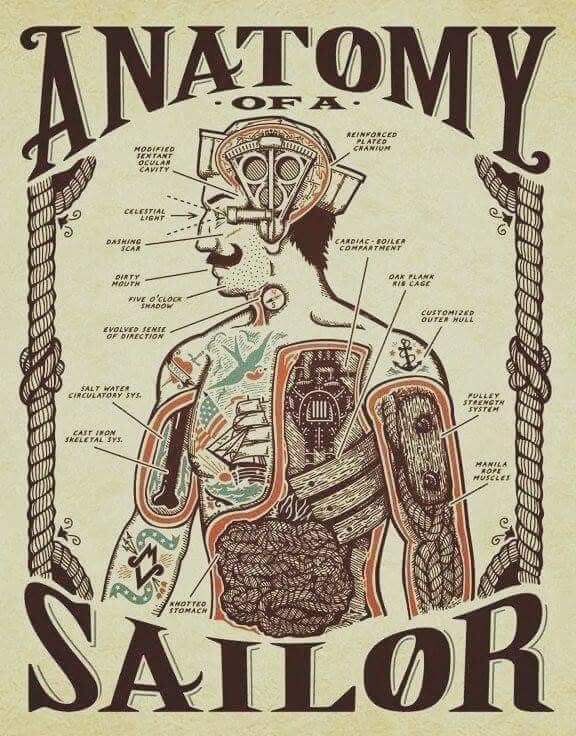 ome Chinese
seafaring proverbs
ome Chinese
seafaring proverbs
- Raise your sail one foot and you get ten feet of wind
- Big ships often sail on big debts
- Don't build a new ship out of old wood
- The heart is but the beach beside the sea that is the world
- You can't load a small boat with heavy cargo
Philippines
The Philippines is among
the largest seafaring nations in the world with approximately 250,000 active
Filipino seafarers working on all kinds of vessels. Although they only make up
15 per cent of Filipino overseas workers, they bring in more dollars than any
other group in the country.
Filipino seafarers generally prefer:
- basketball over football
- billiards over snooker.
Filipino myth
Long
ago, the earth, sea and sky were ruled by three different gods. The sun god, who
ruled the sky, had a beautiful daughter, Luna, the moon. One day she took a path
that led her outside her kingdom. She wandered until she reached the place where
the sky met the sea. As she admired the beautiful things around her, she was
startled by a voice. It asked, "Where have you come from, most beautiful one?"
Turning around she saw a young man. He was smiling at her. She answered, "I
am Luna, daughter of the sun god". The man answered, "l am Mar, the son of the
sea god. Welcome to our kingdom." Soon the two became good friends. They had
many interesting stories to tell each other. When it was time for Luna to go,
they promised to see each other as often as they could. They continued to meet.
Eventually, they fell in love.
One day, after one of their secret
meetings, Luna went back to the heavens full of joy. She was so happy that she
told her secret to one of her cousins. The cousin, jealous of her beauty and
happiness, revealed the secret to the sun god. He was angry about his daughter's
disobedience to the immortal laws. He locked her in the garden and sent a
messenger to the sea god telling him that his son Mar had disobeyed the immortal
law too. The sea god imprisoned his son in one of his sea caves.
Luna longed
to be with Mar again. One day she managed to escape from the garden. She rushed
to their meeting place. Mar saw her reflection on the water from inside the sea
cave.
His attempts to leave the cave caused the sea to become rough. Luna
waited and waited but Mar did not come. She returned home very sad. She tried
several times to see him again and went to the meeting place, but he never came.
Fishers at sea believe that each time Luna, the moon, appears, the sea gets
troubled. "It's Mar trying to escape from his cave," they say.
 Some
common Filipino terms
Some
common Filipino terms
- apat = captain
- hepe =chief
- hepe kubierta =chief mate
- hepe makinista = chief engineer
- maestro amo = bosun
- makina = engine
- kubierta =deck
- pabor= port
- estrebor = starboard
- tali = ropes
- baldeyo = wash the deck / hold
- lkargada =cargo
- kain =to eat
- puerto = port / berth
- Itaibigan =friend
- Ikabayanlkababayan =my countryman
- lkumusta = how are you? / hello
- maalon = big waves / bad weather
- walangsahod = no wages
- walang pera =no money
- yosi =cigarette
- alak = spirit / wine / alcohol.
Few traditions have a deeper impact
on Icelanders than the annual Seafarers' Day, a homage to the heroes of the
seas, who generously supplied the foundation on which the country was built.
Seafarers' Day in Iceland dates back to 1937, when the seafarers' unions in
the capital, Reykjavik, and neighboring Hafnarfjordur founded the Seafarers'
Day Council. Its purpose was to celebrate Iceland's seafarers by dedicating them
one day a year. The first Seafarers' Day was celebrated the following year,
1938,and has been held on the first Sunday in June ever since. It has become
such an integral part of the society that it was made constitutional in 1987and
is one of only 11 flag days in Iceland.
On this day Icelanders pay
tribute to the country's founding industry. Festivities in towns and villages
along the country's coastline include an introduction to seafarers' work and a
tribute is paid to seafarers who have lost their lives at sea and to retired
sailors and pioneers of the industry. On a lighter note, there are rowing
contests, craft shows and songs and dance. All fishing vessels are in harbour on
the day, as the seafarers join with friends, family and the community in the
celebrations.
The Seafarers' Day Council expanded its role in 1939.The
board wanted to support seafarers in every possible way and found it worrying
that, because of the strain of seafarers' work, their occupational life was
relatively short. "To lessen the burden, the council embarked upon building and
operating an old people's home in Reykjavik and the Home of Elderly Sailors was
opened in 1957", says Gudmundur Hallvardsson, Chair of the Seafarers' Day
Council. "Another home was opened in Hafnarfjordur in 1977. Around 700 people
live in the DAS-homes, which are the front runners in care for the elderly in
Iceland today".
Russia
Russia's seafaring tradition goes back to the
time of Peter the Great in the late 17th century. Today there are more than
120,000 Russian seafarers.
Special Russian holidays
On 16 June,
Russians celebrate Neptune Day. According to tradition, seafarers who cross the
equator for the first time must be initiated. The beginner is made to bathe in
the sea or others throw him into a swimming pool. The hapless seafarer must then
crawl through a compartment on board a vessel that has been deliberately daubed
with machine oil. Once he has undergone this ceremony, the seafarer receives the
"Neptune" stamp and an initiation certificate. The next time he crosses the
equator, he will be able to avoid this ritual, on presentation of the
certificate! Mercantile marine and inland water transport workers also hold a
celebration on the first Sunday of July.
Toast to seafarers
It is
common for Russians to make a toast to seafarers during an occasion. This
usually happens after the main toast of the event.
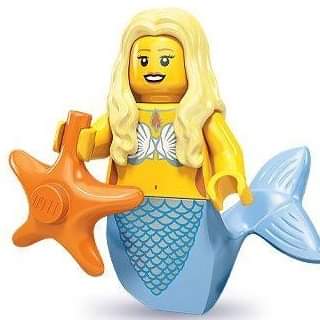 Russian proverb
Russian proverb
To drink beer without vodka is to throw money to the wind.
Some common Russian words and phrases
- privet = hello
- Rossiia = Russia
- ltakdela? = how are you?
- droog= friend
- do svidaniia = good bye
- kapitan = captain
- shef=chief
- port = port
- poidiomvypiem = let'sgofora drink
- vodka =vodka/alcohol
- pivo = beer
- baksv = dollars.
Seafarers' slang
Seafarers from English-speaking nations such as Australia, England, New Zealand and the US have developed a seafarers'slang, which includes some rhyming slang. Here are some examples:
-
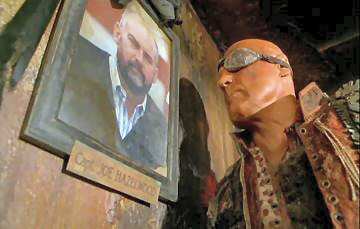 Old man= captain
Old man= captain - Harry Tate = mate / deck officer
- ginger beer = engineer
- leckie = electrician
- sparky = radio officer
- babbling brook = cook
- crumb catcher = caterer / steward
- scalyback = AB / deck rating
- donkey man = head of the engine room ratings
- firemen = engine room ratings
- channels = this describes the feelings that a seafarer has on days before they go on leave after being away for a while
- starboard list = a seafarer has one of these when he has had too much to drink (no prizes for guessing what the rhyme is!)
- pump the bilges = when you need to go to the toilet
- going ashore gear= the clothes you wear when you go ashore to socialize
- pit = a bunk or bed
- doebie = the laundry
- job and knock= when you are given the rest of the day off when you have finished a given task
- bell to bell =working normal rostered hours
- ringbolt = someone or something that is onboard the vessel that should not be there
- docking bottle = the declared bottle of spirits
- black pan = an evening meal that is usually taken at around 10 pm
- cowboy hitch = an incorrect or unrecognizably tied knot.

Sea shanties
These are songs
that are sung by sailors to make working life a little easier. They are based on
a "call and response" lyric and usually involve a whole team of seafarers. The
tradition developed out of the Anglo-Irish and African-Caribbean cultures. The
songs evolved as the seafarers came into contact with other cultures so that
Irish melodies mixed with African and Polynesian rhythms, which in turn blended
in American stories.
The kind of shanty that was sung depended on the job
that was being carried out. For example ...
- Short drag or short haul shanty - these were sung when seafarers were doing jobs that were quick, such as shortening or unfurling sails.
- Long drag shanty - these were sung during heavier work that took a long time, like putting up a sail. The chorus at the end of each line enabled the seafarers to take a break between hauls.
- Capstan shanty - these were used for long repetitive tasks that needed a sustained rhythm, for example, winding up the anchor chain when raising or lowering the anchor.
- Forecastle shanty - this was sung in the evening when the work was done. Usually these focused on songs of love, adventure, battles or humour.
- Whaling shanty - this was sung on board a whaler.
That perfect word for the occasion
The marine industry is a global one, and as such, there is many
different cultures and language onboard a modern ship. And when the wrench, your
fellow engineer is holding, slips off the nut, and jams their knuckles into the
gear box they were trying to fix, a magical thing happens, you start laughing
normally, and a long series of strange and perhaps rhapsodic chants are emitted
by the victim. Wouldn't be great to find out just what was said, in the heat of
the moment?
Fear not, www.dieselduck.net has the tools for you to do your
job, and communicate more efficiently with your peers. Behold, the universal
library of insults and swear words. You can download it here, and start jiving
with the best of them, wherever in the world they may be from!
| Other Areas of the Officer's Lounge | Other areas of www.dieselduck.net |
| - Play practical jokes on unsuspecting mates | - Top of page |
| - Telling jokes | - Officer's Lounge |
| - Learning about seafaring lore and culture | - The Common Rail - our forum |
| - Telling funny stories about seafaring | - The Monitor - our blog |
|
- Learn about "nerdy" stuff |
- @dieselduckster on Twitter |
| Can you help ? Do you have any jokes, superstitions or things like those found here ? If so, shared them with the world. | |







